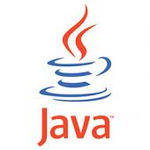Working with java.time in Clojure

I've been working on a new Clojure project, and since I last did production Clojure work, the Joda Time library has been deprecated, and the move has been to the Java 8 java.time classes. The functionality is basically the same, but the conversion isn't, and one of the issues is that the JDBC Postgres library will return Date and Timestamp objects - all based on java.util.Date.
As it turns out, the conversion isn't as easy as I might have hoped. 🙂
For the most part, it's just a simple matter of using different functions, but the capabilities are all there in the Clojure clojure.java-time library. The one key is the conversion with Postgres. There, we have the protocol set up to help with conversions:
(:require [java-time.api :as jt]) (extend-protocol IResultSetReadColumn PGobject (result-set-read-column [pgobj metadata idx] (let [type (.getType pgobj) value (.getValue pgobj)] (case type "json" (json/parse-string-strict value true) "jsonb" (json/parse-string-strict value true) value))) java.sql.Timestamp (result-set-read-column [ts _ _] (jt/zoned-date-time (.toLocalDateTime ts) (jt/zone-id))) java.sql.Date (result-set-read-column [ts _ _] (.toLocalDate ts)))
and the key features are the last two. These are the conversions of the SQL Timestamp into java.time.ZonedDateTime and Date into java.time.LocalDate values.
As it turns out, the SQL values have Local date, and time/date accessors, and so converting to a Zoned timestamp, just means picking a convenient zone, as the
offset is carried in the LocalDateTime already. Using the system default is as
good as any, and keeps things nicely consistent.
With these additions, the data coming from Postgres 16 timestamp and date columns is properly massaged into something that can be used in Clojure with the rest of the clojure.java-time library. Very nice!
UPDATE: Oh, I missed a few things, so let's get it all cleared up here now. The protocol extensions, above, are great for reading out of the Postgres database. But what about inserting values into the Postgres database? This needs a slightly different protocol to be extended:
(defn value-to-jsonb-pgobject "Function to take a _complex_ clojure data element and convert it into JSONB for inserting into postgresql 9.4+. This is the core of the mapping **into** the postgres database." [value] (doto (PGobject.) (.setType "jsonb") (.setValue (json/generate-string value)))) (extend-protocol ISQLValue clojure.lang.IPersistentMap (sql-value [value] (value-to-jsonb-pgobject value)) clojure.lang.IPersistentVector (sql-value [value] (value-to-jsonb-pgobject value)) clojure.lang.IPersistentList (sql-value [value] (value-to-jsonb-pgobject value)) flatland.ordered.map.OrderedMap (sql-value [value] (value-to-jsonb-pgobject value)) clojure.lang.LazySeq (sql-value [value] (value-to-jsonb-pgobject value)) java.time.ZonedDateTime (sql-value [value] (jt/format :iso-offset-date-time value)) java.time.LocalDate (sql-value [value] (jt/format :iso-local-date value)))
basically, we need to tell the Clojure JDBC code how to map the objects, Java or Clojure, into the SQL values that the JDBC driver is expecting. In the case of the date and timestamp, that's not too bad as Postgres will cast from strings to the proper values for the right formats.
But there remains a third set of key values - the Parameters to PreparedStatement objects. This is key as well, and they need to be SQL objects, but here the casting isn't done by Postgres as it is in the JDBC Driver, and that needs proper Java SQL objects. For this, we need to add:
(extend-protocol ISQLParameter java.time.ZonedDateTime (set-parameter [value ^PreparedStatement stmt idx] (.setTimestamp stmt idx (jt/instant->sql-timestamp (jt/instant value)))) java.time.LocalDate (set-parameter [value ^PreparedStatement stmt idx] (.setDate stmt idx (jt/sql-date value))))
Here, the Clojure java-time library handles the date easily enough, and I just need to take the ZonedDateTime into a java.time.Instant, and then the library again takes it from there.
These last two bits are very important for the full-featured use of the new Java Time objects and Postgres SQL. But it's very worth it.